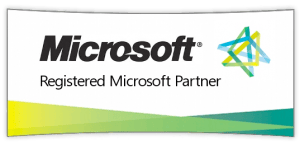A Guide to Document Control and Management for Manufacturing Firms

Introduction
In today’s fast-paced manufacturing world, staying competitive means optimizing every aspect of your operations. It demands precision, efficiency, and compliance at every stage of operations. Manufacturers handle vast amounts of documentation, from product designs and standard operating procedures to regulatory compliance records and quality control reports. A proper Document Management System (DMS) is essential for operational success, regulatory adherence, and maintaining a competitive edge.
What is Document Control?
Document Control refers to the process of managing documents to ensure accuracy, accessibility, security, and compliance with industry regulations. This is often achieved through a dedicated document management system (DMS), which facilitates key aspects of document control. This aspect involves document creation, version control, approval workflows, access management, and secure storage. A well-implemented document control system ensures that the right people access the right documents at the right time, reducing errors and inefficiencies.
Core Principles of Document Control
- Standardization – Establishing consistent formats, naming conventions, and structures to ensure clarity and easy retrieval.
- Version Control – Maintaining a structured approach to document revisions, ensuring only the latest approved versions are in use.
- Access Control – Restricting access to documents based on user roles and responsibilities to enhance security.
- Auditability – Keeping a detailed record of document history, including modifications, approvals, and user activity.
- Regulatory Compliance – Ensuring that all documents align with relevant industry standards and regulations.
- Retention and Disposal – Defining policies for document storage duration and safe disposal when no longer needed.
Challenges in Manufacturing Document Management
- High Volume and Variety of Documents
Manufacturing requires managing a diverse range of documents, including drawing files, blueprints, standard operating procedures (SOPs), regulatory documents (ISO, OSHA, FDA), contracts, and financial records. These exist in multiple formats, making organization and retrieval complex.
- Accuracy and Version Control
In manufacturing, accuracy is paramount. Outdated or incorrect documentation can lead to production errors, product defects, safety hazards, and regulatory non-compliance. Version control is equally crucial. Manufacturing processes often undergo revisions and improvements. It’s vital to ensure that everyone is working with the latest approved version of a document and that previous versions are properly archived and accessible if needed for traceability. Manual systems struggle to maintain this level of precision.
- Regulatory Compliance
Strict industry regulations demand meticulous documentation. Manufacturing industries are heavily regulated. Compliance with standards like ISO 9001, industry-specific regulations (e.g., FDA for pharmaceuticals, aerospace standards), and environmental regulations requires meticulous documentation. Audits are common, and the ability to quickly and accurately produce required documentation is essential for maintaining compliance and avoiding penalties.
- Traceability and Quality Control
Traceability is essential for quality control and product recalls. Manufacturers must track product history from raw materials to finished goods. A robust document control system links documents to specific products and processes, ensuring effective traceability.
- Collaboration and Communication
Manufacturing involves collaboration across multiple departments and often with external suppliers and partners. Effective communication and information sharing are critical. A centralized document management system facilitates collaboration by providing a single source of truth for all documentation, ensuring that everyone has access to the information they need, when they need it.
- Productivity and Efficiency
Manual document management processes are inherently inefficient. Searching for paper documents can be time-consuming, and manual data entry is prone to errors. These inefficiencies can lead to delays in production, increased costs, and reduced productivity. A DMS automates many of these processes, freeing up employees to focus on more value-added tasks.
- Security Risks
Manufacturing documents often contain sensitive information, such as product designs, formulas, and financial data. Paper-based systems are vulnerable to loss, damage, and unauthorized access. A secure DMS provides access controls, encryption, and other security features to protect sensitive information.
Managing these documents manually is a recipe for inefficiency, errors, and compliance risks. Paper-based systems are prone to loss, damage, and version control issues. Searching for critical information can be time-consuming, impacting productivity and delaying critical decisions. Furthermore, manual processes are often error-prone, leading to inaccuracies in documentation and potential quality issues.
Best Practices for Effective Document Control in Manufacturing
- Define Clear Document Control Policies: Establish rules for document creation, modification, approval, and distribution.
- Implement Role-Based Access: Ensure only authorized personnel have access to specific documents.
- Use Metadata and Indexing: Categorize documents with relevant tags to improve searchability and retrieval.
- Regularly Audit and Review Documents: Conduct periodic audits to remove outdated documents and ensure compliance.
- Digitize Paper Documents: Convert physical records into digital formats to enhance accessibility and reduce storage costs.
- Automate Workflows: Utilize document control software to streamline approvals, routing, and notifications.
- Ensure Secure Backup and Recovery: Maintain redundant copies of critical documents to prevent data loss.
Benefits of a Document Management System (DMS)
A modern DMS centralizes, secures, and automates document-related processes, helping manufacturers enhance efficiency and compliance.
Key Advantages of a DMS
- Centralized Storage: Eliminates scattered paper and digital files, creating an organized, easily searchable repository.
- Enhanced Collaboration: Enables real-time document sharing and editing, preventing version conflicts and data loss.
- Automated Workflows: Speeds up approvals and decision-making by automating document routing.
- Security and Access Control: Protects sensitive data with authentication, encryption, and role-based access.
- Regulatory Compliance: Ensures easy audit preparation with tracking, approvals, and version history.
- Integration with Business Systems: Connects seamlessly with ERP, CRM, and other platforms for smooth data exchange.
- Remote Access: Provides secure document retrieval from any location, supporting mobile and remote work.
Docsvault: A Tailored Solution for Manufacturing
Docsvault is an industry-leading document management and workflow automation solution designed to meet the dynamic needs of manufacturers. It helps you organize, secure, and process critical business information, including employee documents, client records, compliance and certification data, and much more.
- User-Friendly Interface: Docsvault is designed to be easy to use, ensuring quick adoption and long-term satisfaction.
- Flexibility and Scalability: On-premise Docsvault Document Management can scale to meet the needs of any size manufacturer, allowing you to easily add users and storage as your business grows.
- Robust Security: Docsvault provides industry-leading security features to protect your valuable information.
- Mobile Access: Access and process information from anywhere, anytime, on any device.
Real-World Impact
Manufacturers using Docsvault report:
- Reduced paper costs and storage needs
- Increased efficiency and collaboration
- Improved data accuracy and streamline compliance
- Faster product development and market entry
- Higher customer satisfaction
Conclusion: Secure Your Competitive Edge
In a competitive manufacturing environment, effective document control and management are no longer optional—they’re essential. Docsvault is more than just a document management solution; it’s a strategic investment in your operations. By streamlining processes, enhancing collaboration, and ensuring compliance, Docsvault empowers you to improve efficiency, reduce costs, and stay ahead of the competition.





